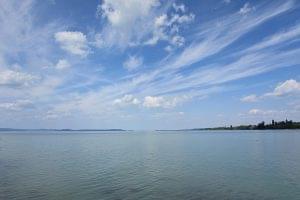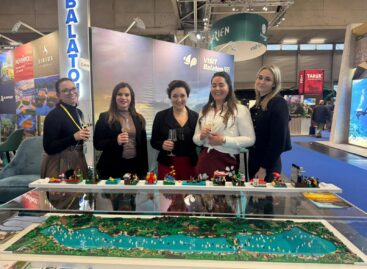There are ten times as many microplastics in Lake Balaton as in Bodrog
There are 21 microplastics in 1,000 liters of Balaton water, in Kis-Balaton this number is around 7-8, while in one of Hungary’s most polluted waters, Bodrog, the researchers of HUN-REN’s Balaton Limnological Research Institute counted 214.8 plastic particles.
 During the most recent research, measurements were made at eight locations in the two basins of Lake Balaton, in the 50 micrometer and 1 millimeter range, the staff of the HUN-REN Balaton Limnological Research Institute (BLKI, Tihany) together with the researchers of the Hungarian University of Agriculture and Life Sciences (MATE, Gödöllő) – read the The Hungarian Research Network (HUN-REN) announced on Wednesday.
During the most recent research, measurements were made at eight locations in the two basins of Lake Balaton, in the 50 micrometer and 1 millimeter range, the staff of the HUN-REN Balaton Limnological Research Institute (BLKI, Tihany) together with the researchers of the Hungarian University of Agriculture and Life Sciences (MATE, Gödöllő) – read the The Hungarian Research Network (HUN-REN) announced on Wednesday.
The researchers filtered a cubic meter of water using different technologies and in different steps, and identified seven types of plastic in the size range examined. Polypropylene (PP), polystyrene (PS) and polyethylene (PE) were the most common plastics that entered the water primarily from films, PET bottles, bags, clothing and thermal insulation material (styrofoam).
The tests were extended to the Little Balaton as well, so that the data of the two water bodies could be compared. In Kis-Balaton, the researchers found an average of 7-8 microplastic particles per thousand liters of water, while in Lake Balaton 21.
Related news
Last year, 2.4 million people traveled on BAHART ferries and ships
🎧 Hallgasd a cikket: Lejátszás Szünet Folytatás Leállítás Nyelv: Auto…
Read more >Szallas.hu: Lake Balaton was a determining factor among domestic travelers last year
🎧 Hallgasd a cikket: Lejátszás Szünet Folytatás Leállítás Nyelv: Auto…
Read more >Related news
ZEW: Economic expectations worsened in Germany and the euro area in February
🎧 Hallgasd a cikket: Lejátszás Szünet Folytatás Leállítás Nyelv: Auto…
Read more >NKFH: inspections focus on discount prices and customer deception
🎧 Hallgasd a cikket: Lejátszás Szünet Folytatás Leállítás Nyelv: Auto…
Read more >







